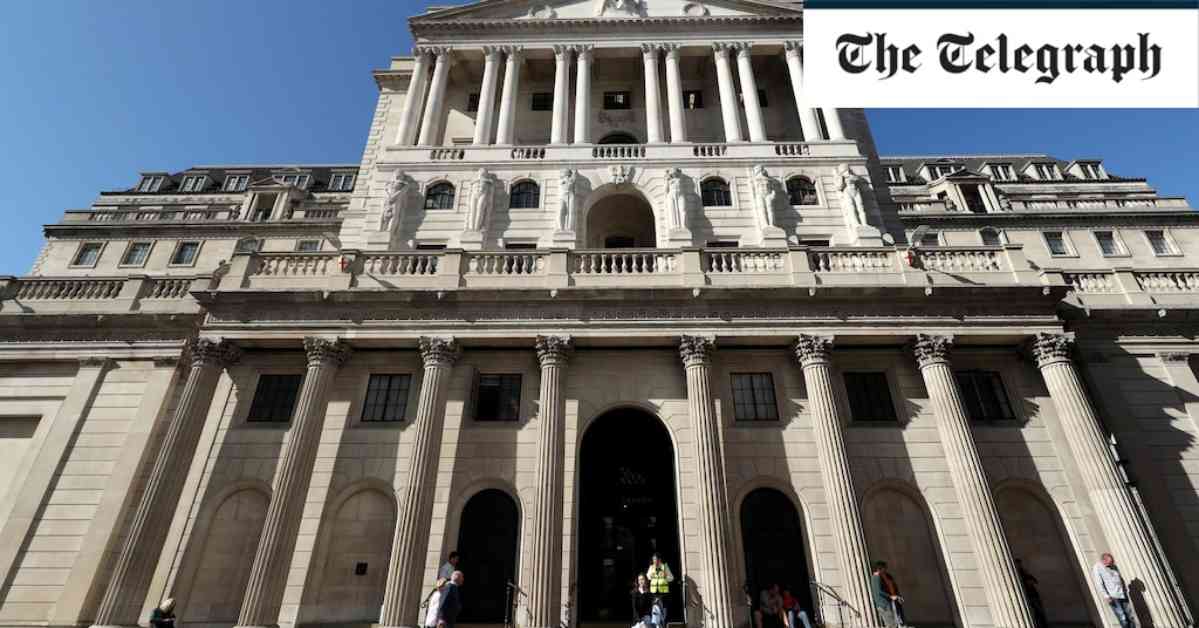Eurozone Employment Growth Slows in Second Quarter
During the second quarter of the year, companies across the eurozone hired staff at a slower pace, with official figures showing a growth of 0.2% in employment compared to 0.3% in the previous quarter, as reported by Eurostat. This decline in employment growth comes amidst declining confidence in Germany, Europe’s largest economy.
The European Central Bank is expected to cut interest rates two more times this year in response to the weakening economy in the region. Growth remained at 0.3% in the second quarter, prompting money markets to indicate potential rate cuts by the ECB.
Eurozone Economy Sees 0.3% Growth
In line with economists’ expectations, the eurozone economy grew by 0.3% in the second quarter of the year.
UK Borrowing Costs Ease Amid Inflation Rise
Despite a slump in global bond markets, the UK Government’s borrowing costs have fallen after inflation rose less than expected. The yield on 10-year UK gilts dropped by three basis points to 3.86%. Meanwhile, yields on eurozone and US bonds rose, with money markets anticipating interest rate cuts in response to the changing economic landscape.
Aviva Reports Increase in Sales and Profits
Insurance giant Aviva has seen higher sales and profits in the past six months, driven by strong trading performance. The company reported an operating profit of £875m for the first half of 2024, up 14% from the same period a year earlier. Despite the positive results, Aviva’s shares were down, reflecting market dynamics.
Inflation Impact on Poorer Households
According to the Institute for Fiscal Studies, poorer households have experienced higher price rises compared to wealthier families. The cost of the cheapest food brands has seen significant increases, putting pressure on low-income households. This disparity in inflation rates highlights the challenges faced by vulnerable populations in the face of rising living costs.
Market Response to Economic Trends
European shares rose as investors awaited inflation figures from the US and second-quarter growth data from the eurozone. The positive market sentiment was further fueled by US producer prices increasing less than expected in July. Individual stocks like UBS and Straumann saw gains, reflecting the overall market optimism.
FTSE 100 Rises on Interest Rate Cut Expectations
UK stocks advanced as inflation rose less than expected, leading traders to bet on potential interest rate cuts by the Bank of England. The FTSE 100 climbed to a two-week high, with most sectors showing gains. Despite positive market movements, concerns lingered about the impact of rising inflation on business rates and overall economic stability.
Inflation Trends and Economic Impact
Inflation rose by less than expected, partially attributed to the end of the “Taylor Swift effect” on hotel prices. The fluctuation in inflation rates underscores the complex interplay of various factors shaping the economy. While rising inflation can pose challenges, it also presents opportunities for policy adjustments to maintain stability.
Core Inflation Trends and Market Response
Core inflation, excluding volatile food and energy prices, fell more than expected, indicating a downward trajectory in price rises. This easing of core inflation aligns with broader economic trends and sets the stage for potential interest rate adjustments to address inflation concerns.
Economic Outlook and Policy Considerations
As inflation trends fluctuate, policymakers and market observers closely monitor economic indicators to make informed decisions. The gradual decline in core inflation and other key metrics signal the need for strategic interventions to sustain economic stability. Market responses to changing inflation rates highlight the importance of proactive policy measures.
Challenges and Opportunities in Economic Landscape
Navigating the evolving economic landscape requires a nuanced understanding of inflation dynamics and their broader impact. Rising inflation presents challenges for households and businesses, underscoring the need for responsive policy measures. By addressing inflation concerns proactively, policymakers can mitigate risks and promote sustainable economic growth.
Subheadings:
1. Eurozone Employment Trends
2. Market Responses to Economic Indicators
3. Policy Considerations Amid Inflation Fluctuations












